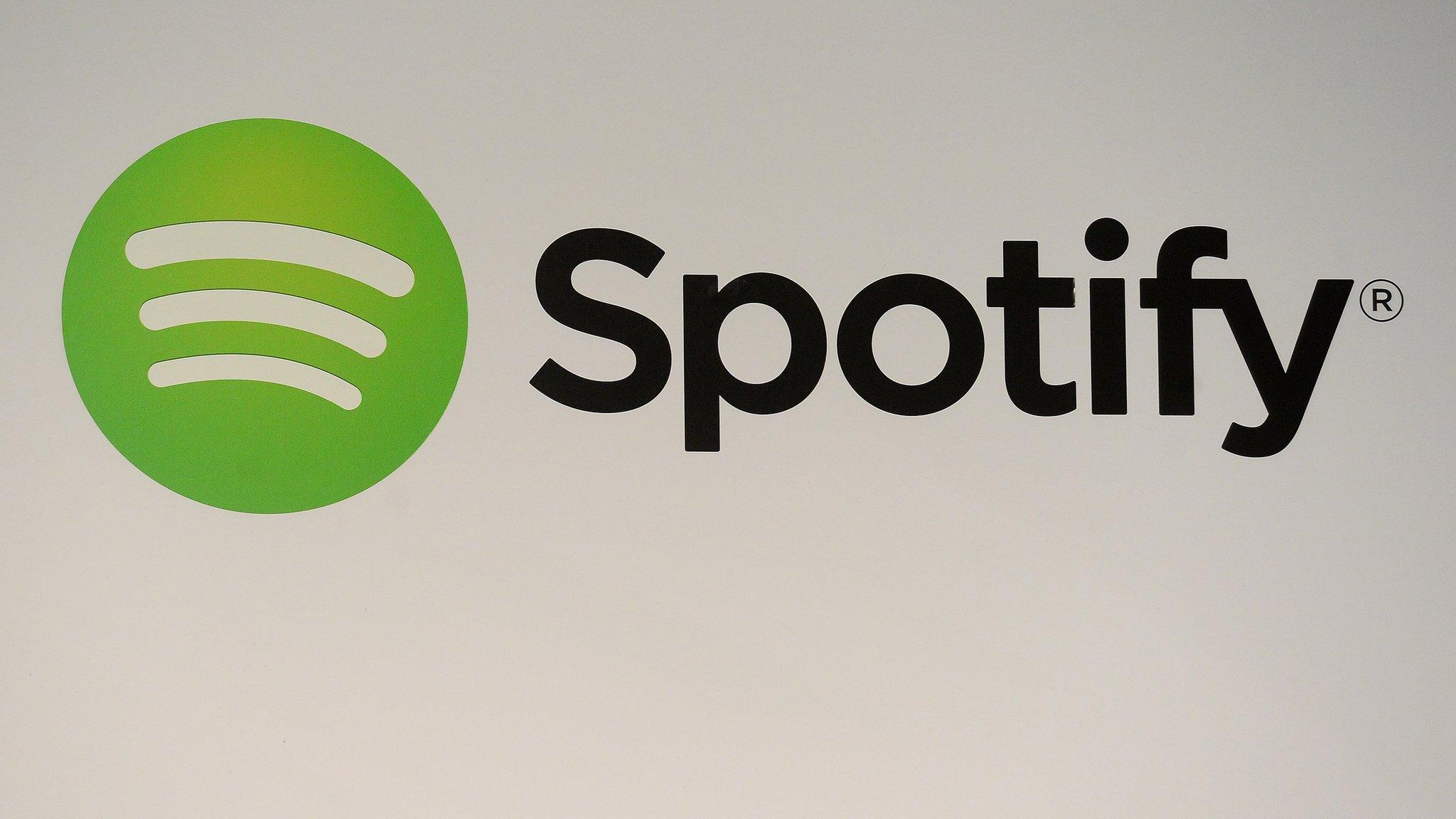Stream-ripping is 'fastest growing' music piracy
- Published

Converting and downloading YouTube videos is a violation of the site's terms and conditions
Stream-ripping is now the fastest-growing form of music piracy in the UK, new research has suggested.
Several sites and apps allow users to turn Spotify songs, YouTube videos and other streaming content into permanent files to store on phones and computers.
Record labels claim that "tens, or even hundreds of millions of tracks are illegally copied and distributed by stream-ripping services each month".
One service alone is thought to have more than 60 million monthly users.
According to research by the Intellectual Property Office, external and PRS For Music, external, 15% of adults in the UK regularly use these services, with 33% of them coming from the 16-24 age bracket.
Overall usage of stream-ripping sites increased by 141.3% between 2014 and 2016, overshadowing all other illegal music services.
In September last year, these sites were used 498,681 times to pirate music in the UK. By comparison, file-sharing service BitTorrent was used 23,567 times; and Cyberlocker sites like Dropbox and Rapidshare were accessed 104,898 times.
"As soon as we think we've come up with an innovative solution [to piracy], the pirates seem to come up with an even more innovative infringement tactic," said Pippa Hall, Chief Economist at the IPO.

Reasons given for stream-ripping included:
Music was already owned by the user in another format (31% of users)
Wanting to listen to music offline (26%)
Wanting to listen to music on the move (25%)
Cannot afford to pay for music (21%)
The feeling that official music content is overpriced (20%)
(These figures add up to more than 100%, as people were allowed to choose more than one response)
A quarter of the people who use stream-ripping believed the sites had the necessary rights and permissions to allow them to download and rip content; and one in five said they felt they were not doing anything illegal.
Only 56% per cent of consumers said they felt confident in identifying illegal content online, the IPO said.
Robert Ashcroft, chief executive of PRS for Music, external, said: "We hope that this research will provide the basis for a renewed and refocused commitment to tackling online copyright infringement.
"The long-term health of the UK's cultural and creative sectors is in everyone's best interests, including those of the digital service providers, and a co-ordinated industry and government approach to tackling stream-ripping is essential."
There was some good news for the music industry in the IPO's research, however.
It found that the average consumer spent £75 on music last year, up from £68 in 2016.

Follow us on Facebook, external, on Twitter @BBCNewsEnts, external, or on Instagram at bbcnewsents, external. If you have a story suggestion email entertainment.news@bbc.co.uk, external.

- Published15 June 2017

- Published9 December 2016

- Published27 September 2016
